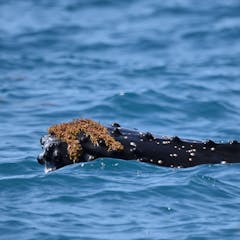
Articles on Biodiversity
Displaying 81 - 100 of 883 articles

A new study suggests a radical rejigging of where food is grown. But is such a world even possible?

Understanding how both cloud cover and temperature work to promote coral bleaching provides valuable insight into how reefs will change over various climate scenarios.

On New South Wales’ southern coast, First Nations groups and European whalers hunted alongside orcas. But what happened to this unusual group?

Mangroves do a surprising amount for us. But we’re often not looking after them. Here’s how we can protect these forests of the sea edge better.

Victoria’s iconic mountain ash forests are reeling from decades of logging and fire. They’re not recovering on their own.

One night, someone cut down a tree. It wasn’t just any tree. The loss of the Sycamore Gap tree sent a nation into grief. But why?

As oceans warm, Canada’s marine protections system looks woefully inadequate. New monitoring systems and flexible governance can help Canada protect the areas most likely to have the greatest impact.

A new study reveals how the geography of global climates influences the rich patterns of species diversity in an ever-changing world.

Wildlife populations continue to decline in the UK, one of the world’s most nature-deprived countries.

Citizen science is coming of age. The data are pouring in from observations by naturalists and birders.

If a whale comes across a patch of kelp, it may well start playing with it. This practice may also be useful to rid whales of unwanted passengers.

In reversing his decision on the Greenbelt, Doug Ford made no mention of ecology or biodiversity, the very things the Greenbelt was created to protect.

Nature positive is the new rallying cry to reverse environmental decline. But it could easily become greenwash – if we’re not careful.

We’re making life tough for insects – and not just by swatting them away with a newspaper.

The new report on alien invasive species doesn’t just concentrate on problems. It also offers solutions.

Invasive ants are a major threat to biodiversity, according to a study.

Many animal species can be detected using a simple, low tech method of collecting DNA from the environment.

Many researchers are exploring high-tech ways to help reefs survive the climate crisis. But low-tech solutions like manually pulling out seaweed have a place too.

Australia has almost 1.8 million farm dams – and some are home to threatened frog species

Mistletoes are ecological keystones that boost habitat value for wildlife, so we added them to established plane trees in the inner city.
